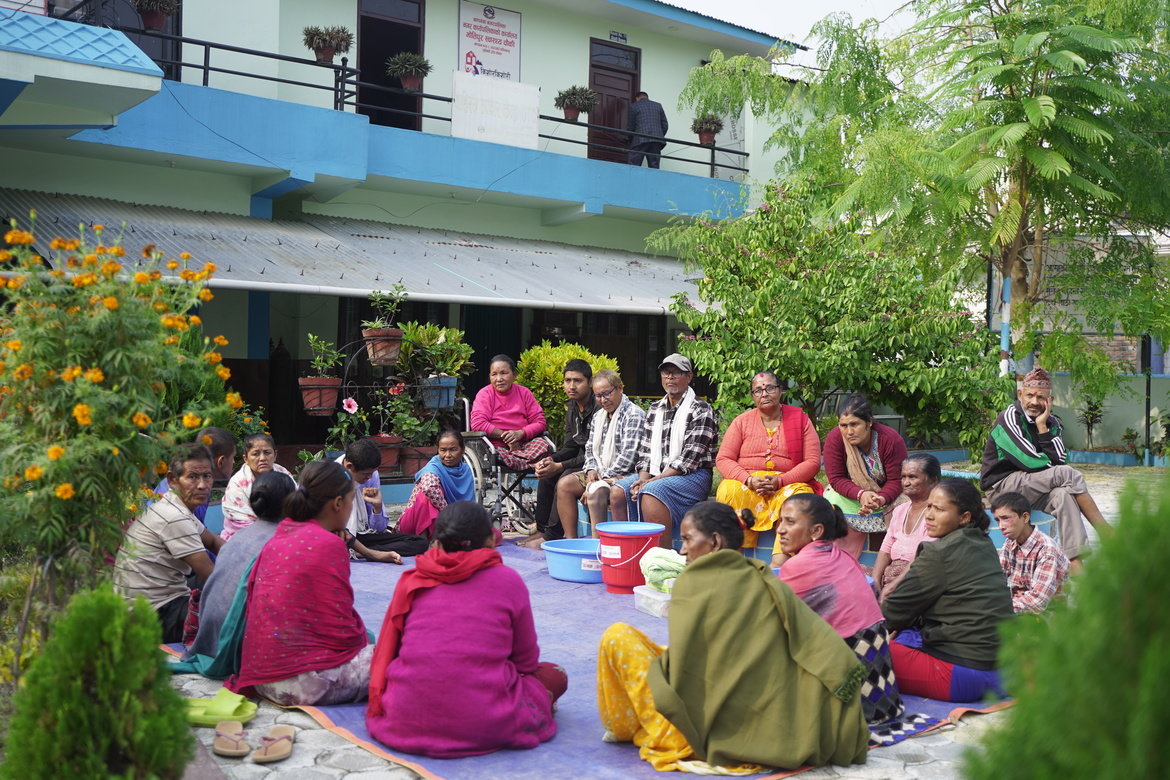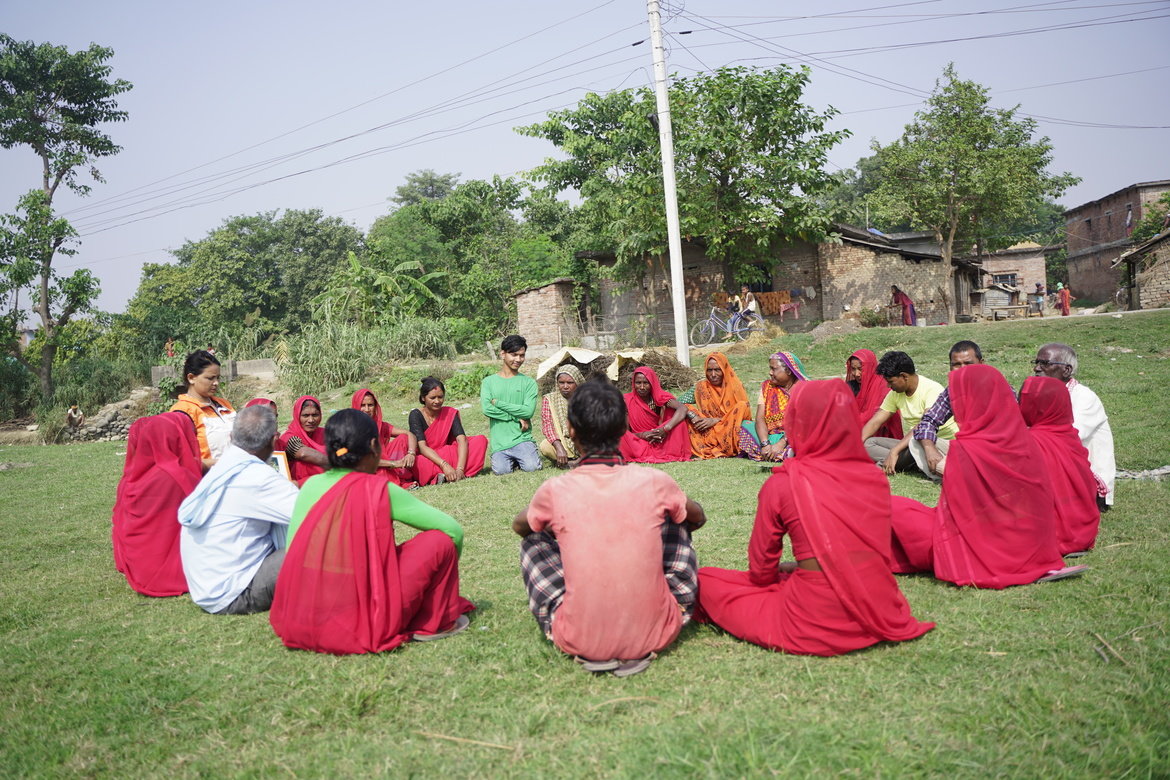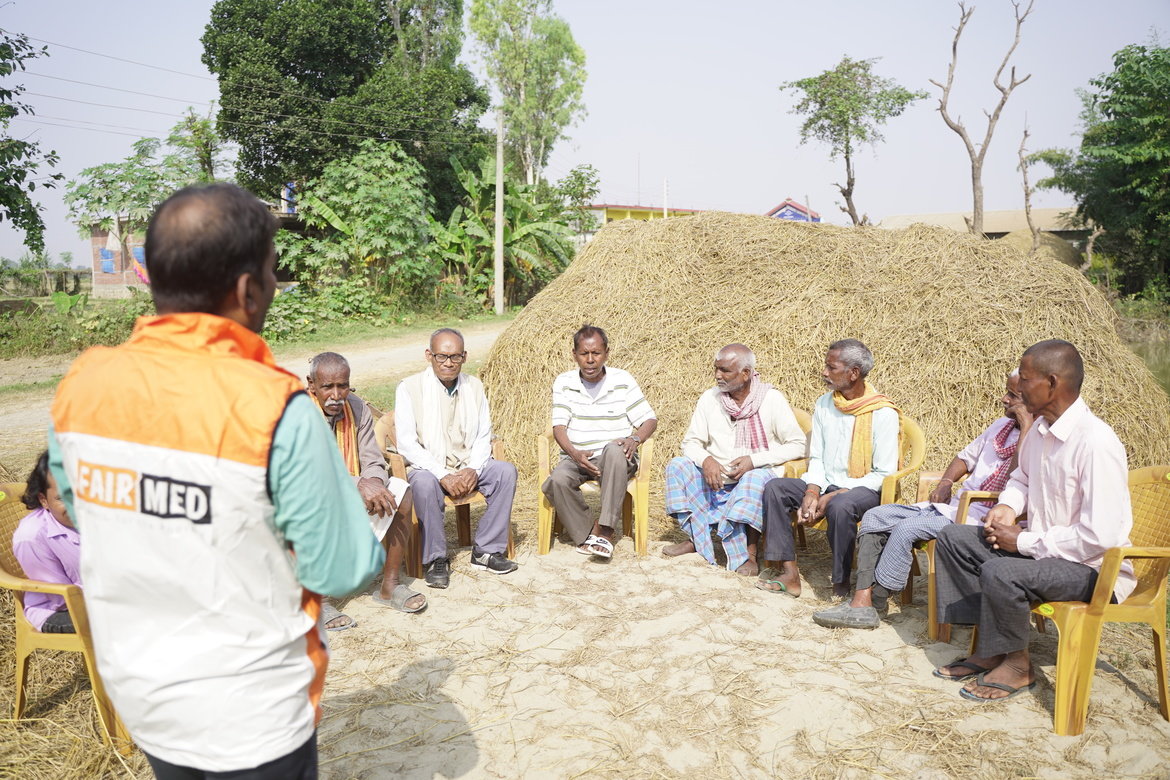FAIRMED Contributes to Developing Guideline for Self-Help Groups in Lumbini Province
FAIRMED contributed to the development and publication of a comprehensive guideline for Self-Help Groups (SHGs) in Lumbini Province. This document aims to strengthen the support system for individuals suffering with challenging conditions, such as lymphatic filariasis, by providing a structured approach to rehabilitation and empowerment.
Self-Help Groups play a crucial role in offering a rehabilitation opportunities to those facing the physical, emotional, and social challenges brought about by debilitating health conditions and disabilities. These groups go beyond just managing diseases; they provide individuals with the opportunity to thrive, defy limitations, and live with dignity and purpose. For disabilities caused by conditions like lymphatic filariasis, which currently have no cure, SHGs are essential in managing the symptoms and ensuring a meaningful quality of life.
The Need for the Guideline: The guideline is expected to coordinate the efforts of various SHGs to widen their impact. The newly published guideline for Self-Help Groups in Lumbini Province by FAIRMED in collaboration with local stakeholders, aims to provide a standardized approach to forming, managing, and sustaining SHGs, ensuring that these groups can function effectively and reach more individuals who need them.The guideline outlines the essential components for successful SHGs, including:
- Formation and Structure: Guidance on establishing SHGs, including membership criteria, leadership roles, and organizational structure.
- Activities and Focus Areas: Recommended activities to enhance physical, emotional, and social well-being, such as skill-building workshops, income-generation initiatives, and health education sessions.
- Support Mechanisms: Strategies for providing ongoing support to members, including health counseling, peer mentoring, and community outreach programs.
- Monitoring and Evaluation: Tools and metrics to assess the impact of SHGs, ensuring continuous improvement and relevance.
Implications of the Guideline: The publication of this guideline marks a step forward in the rehabilitation of people with disabilities and povertry. With a clear, standardized framework, SHGs will have a guiding document to help them operate more effectively and sustainably. The guideline will also serve as a reference for local government bodies, healthcare providers, and community organizations, helping them understand the importance of SHGs and integrate them into broader public health and social support systems.
By providing a roadmap for SHGs, the guideline will strengthen rehabilitation efforts, encourage wider adoption, and promote social inclusion. With better-managed SHGs, individuals will find a supportive community that builds their growth, breaks down stigmas, and encourages active participation in their rehabilitation journey.
FAIRMED is dedicated to promoting inclusive rehabilitation for people affected by Neglected Tropical Diseases (NTDs). Involvement in developing this guideline is a key focus of our program, as it aligns with our commitment to supporting comprehensive care. Recognizing the importance of both prevention and management strategies, FAIRMED has consistently advocated for a holistic approach to health and well-being. We believe that every person, regardless of their condition, deserves the chance to live with dignity and purpose. By empowering Self-Help Groups (SHGs) through this guideline, we are taking a vital step toward making this vision a reality for the people of Lumbini Province.


